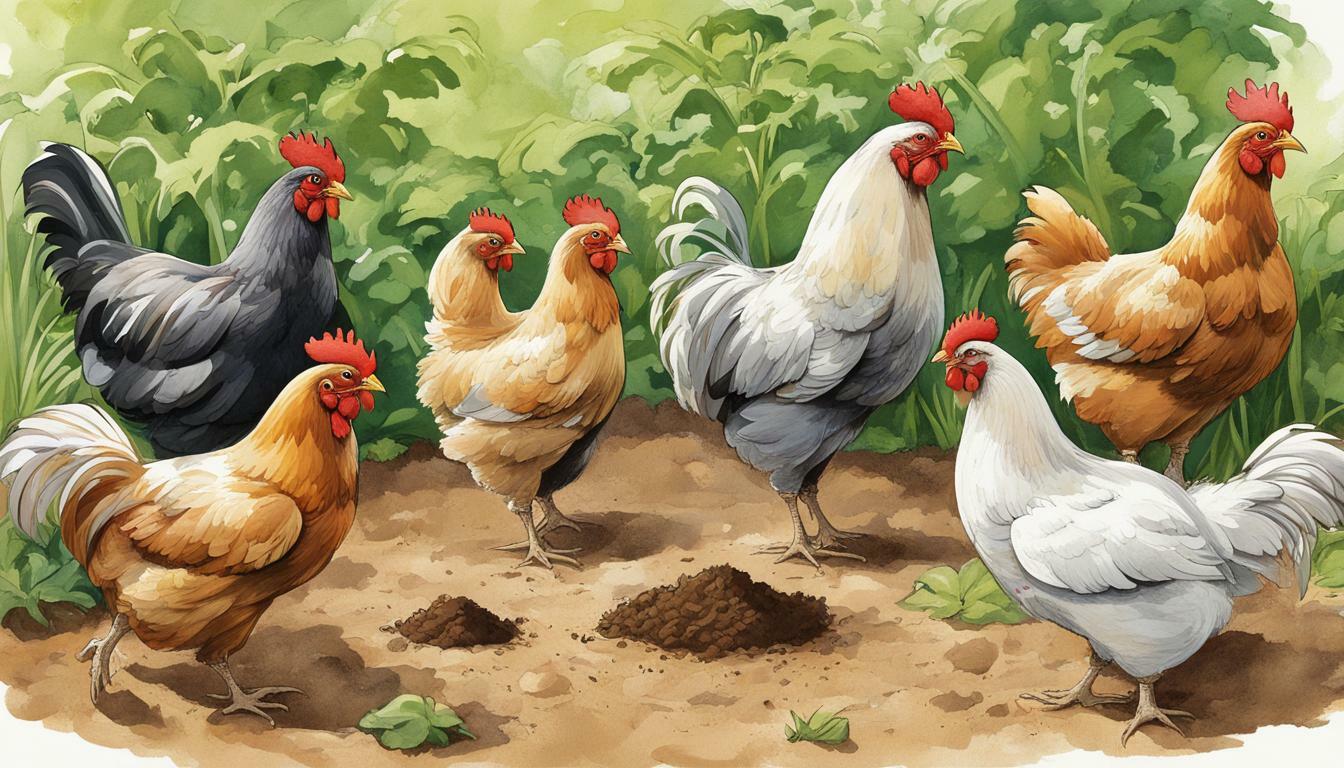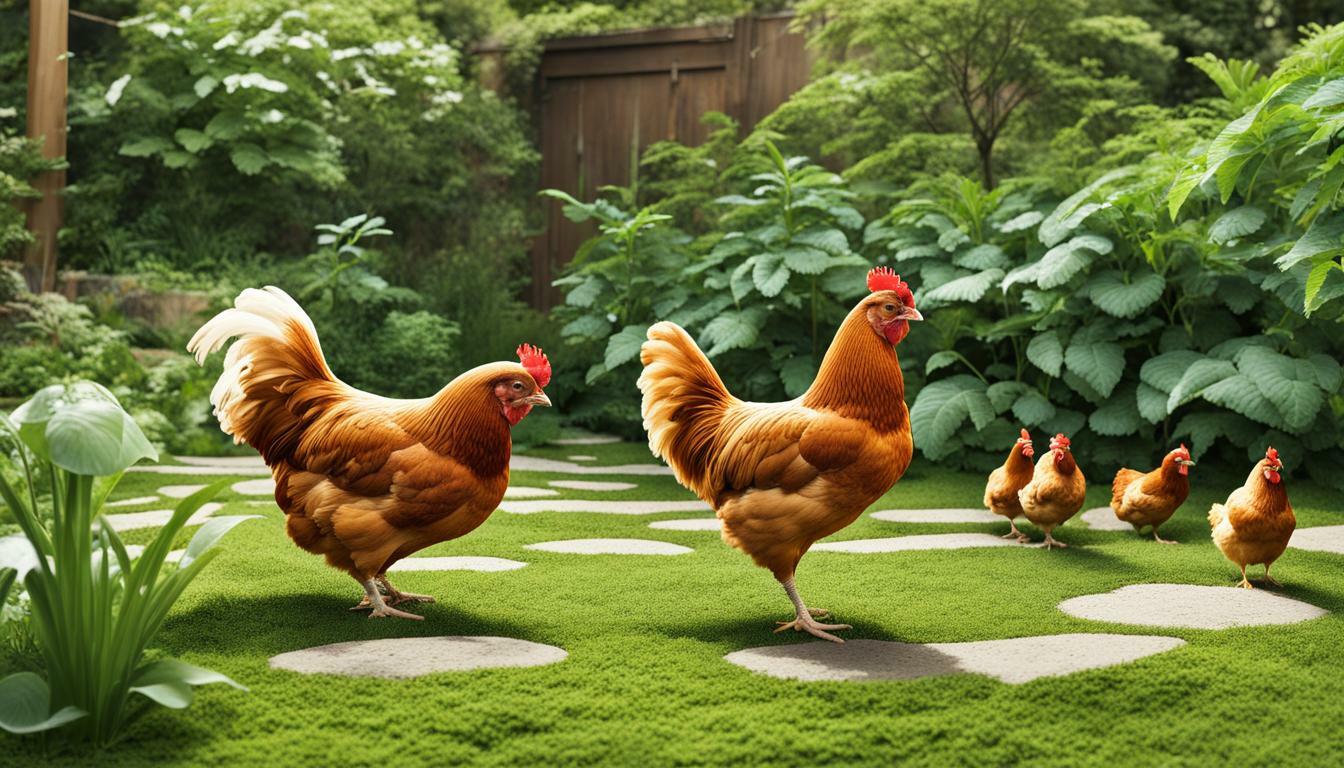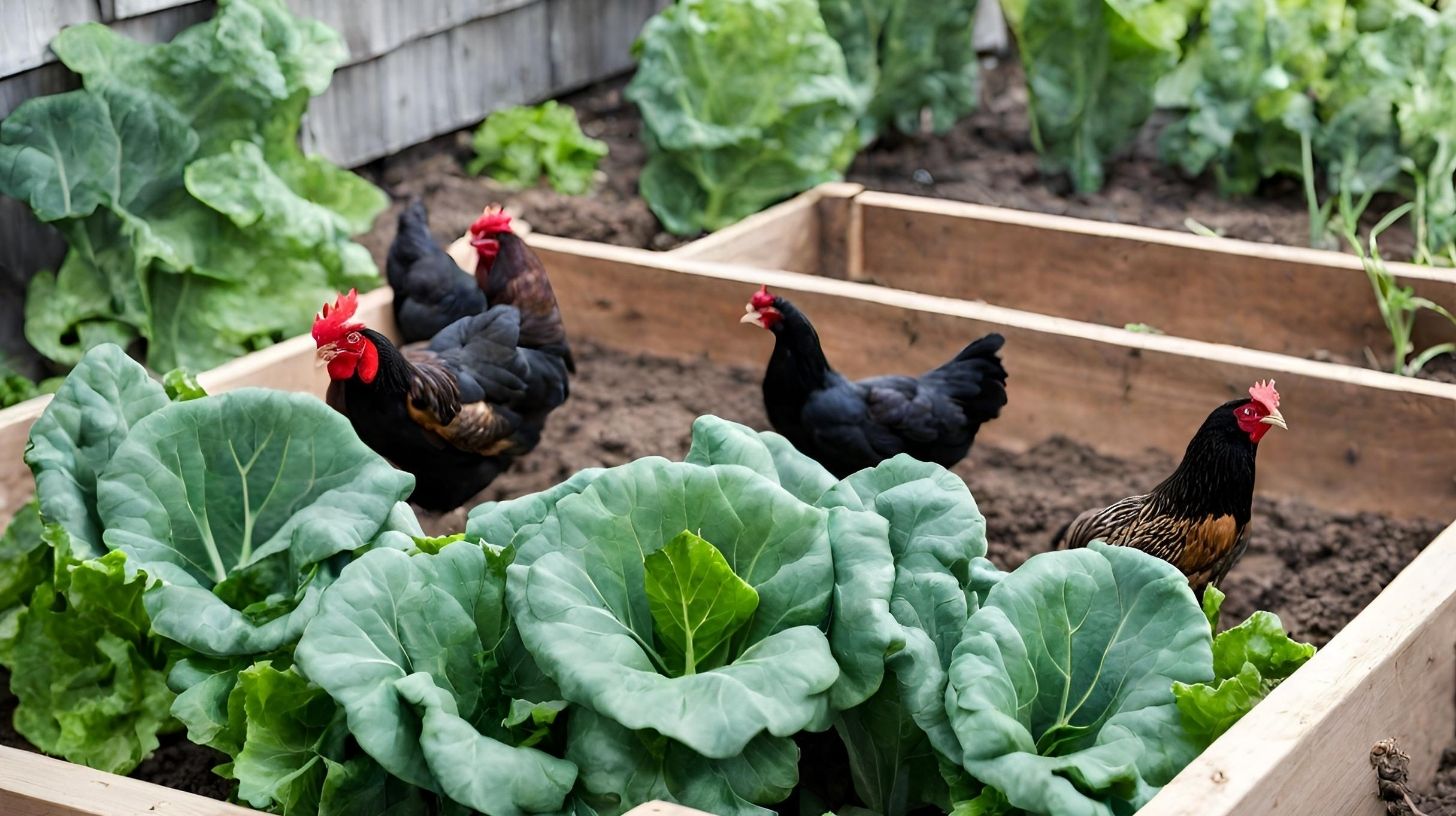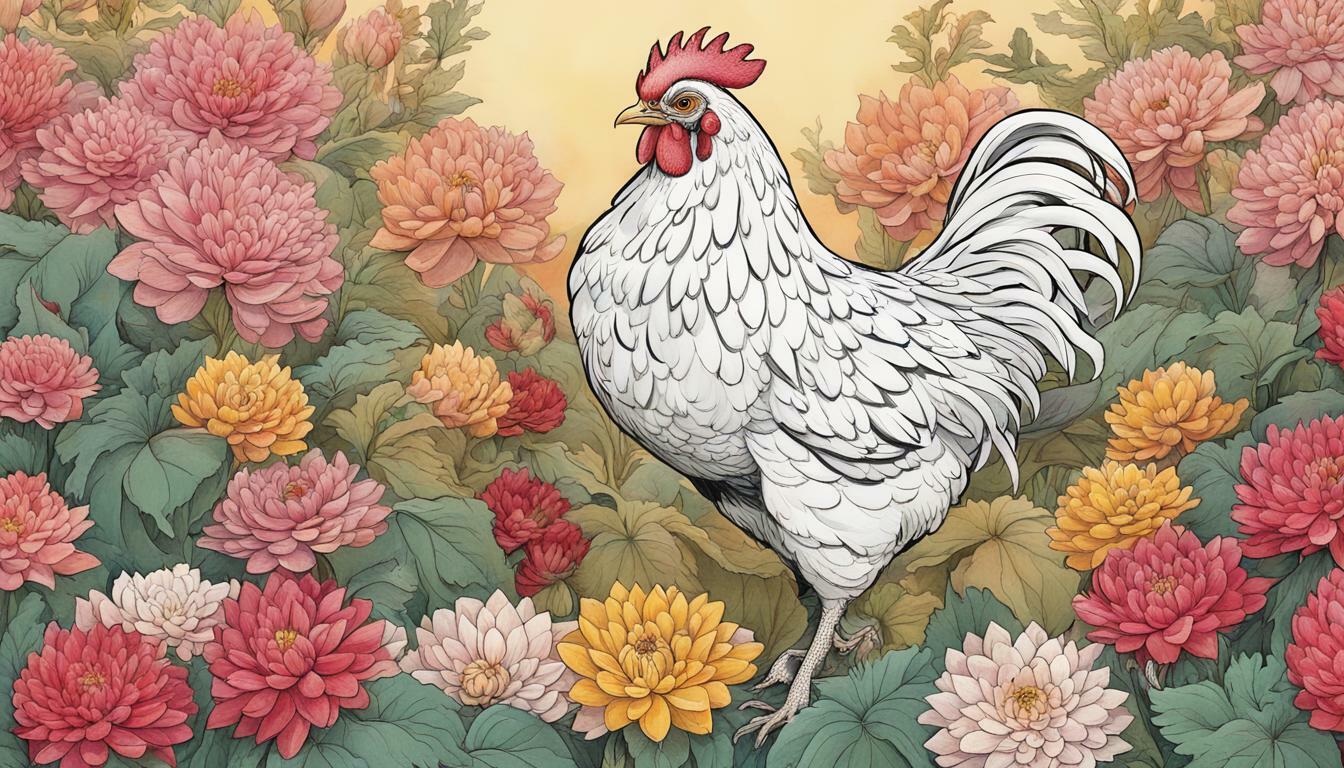Do Chickens Eat Jumping Worms? Backyard Poultry Guide

Table of content:
Jumping worms, also known as Asian jumping worms, are an invasive worm species that have been spreading across North America over the past few decades. These worms got their name from their distinct behavior of thrashing around wildly when disturbed. This has led many backyard chicken owners to wonder – do chickens eat jumping worms?
Do Chickens Like to Eat Jumping Worms?
For chicken owners dealing with a jumping worm infestation, a natural question is whether chickens will eat these wriggly worms. So do chickens like eating jumping worms?
The answer is yes – chickens will readily eat jumping worms. In fact, many chicken owners have observed their hens eagerly gobbling up any jumping worms they find in the run or pasture.
Chickens are omnivores and will eat a wide range of insects, worms, and other small prey. Worms provide chickens with a good source of protein and nutrients. Jumping worms just happen to be wiggly, meaty mouthfuls that chickens find delicious.
While earthworms burrow deep in the soil, jumping worms stay near the surface. This makes them easy for chickens to snap up as a tasty treat. The thrashing movements of jumping worms also seem to stimulate the chicken’s prey drive.
Some key signs that your chickens enjoy eating jumping worms:
- Your chickens scampering excitedly and pecking at the soil.
- Jumping worms being eagerly consumed as soon as they appear.
- A reduction in the number of jumping worms you see around the run.
So in summary, yes, chickens definitely like eating jumping worms and will readily gobble them up when given the chance. Letting chickens forage in jumping worm infested areas can be an effective way to control this invasive pest.
What Worms Do Chickens Like to Eat?
While jumping worms make for a tasty snack, chickens will eat a wide variety of worm species. So what types of worms can chickens eat?
Here are some of the most common worms chickens will readily consume:
Earthworms – The common earthworm is a favorite feed for chickens when they can dig them up. Their larger size makes for more of a mouthful.
Red worms – Red worms, also called red wrigglers or composting worms, are a staple treat for backyard chickens. Their small size means chickens can quickly snap them up.
Silkworms – Domesticated silkworms are enjoyed by chickens as a protein-rich feed source. Wild silkworm caterpillars may also be eaten.
Mealworms – Mealworms are often fed to chickens as a supplement. Chickens will forage and eat any mealworm beetles they find as well.
Black soldier fly larvae – These grublike larvae are nutritious for chickens. They are soft bodied so chickens swallow them easily.
Waxworms – The fatty waxworm larvae are like candy for chickens. However, too many can lead to obesity.
In the wild, chickens will eat almost any small soft-bodied invertebrates they can capture, including grubs, maggots, snails, slugs, and more. Overall, worms are a tasty treat that provides protein, fat, and essential nutrients.
Are Jumping Worms Good For Chickens?
We’ve established that chickens love to eat jumping worms. But are jumping worms actually good for chickens when consumed? Let’s look at the potential benefits and risks.
Benefits
- Protein source – Jumping worms provide a decent source of protein for chickens, like other worms.
- Foraging – Chasing jumping worms provides exercise and can encourage natural foraging behaviors.
- Nutrition – Jumping worms contribute minerals, fats, and nutrients to a chicken’s diet.
Potential Risks
- Soil contaminants – Any toxic pesticides or chemicals in the soil could be consumed along with worms.
- Parasites – It’s possible jumping worms could transmit parasites, though the risk is low.
- Impaction – Eating too many worms too quickly could potentially cause temporary crop impaction.
- Predation – Chasing worms could attract predators drawn by the chicken’s activity.
Overall, jumping worms do appear to be a safe, healthy supplement to a chicken’s regular diet, providing protein, enrichment and nutrition. However, risks can be minimized by:
- Making sure chickens forage for worms in contaminant-free soil.
- Mixing some grit into worm feeding areas to help digestion.
- Ensuring adequate calcium to balance the phosphorus in worms.
- Monitoring to prevent excessive worm consumption.
So in moderation, jumping worms can be a nutritious part of a backyard chicken’s varied diet. Letting the hens help control this invasive species is a win-win.
Can Chickens Get Sick From Eating Jumping Worms?
While jumping worms are safe for chickens to eat, could feasting on jumping worms cause chickens to become sick? Let’s look at some potential concerns:
Parasites – Parasitic worms like gapeworms are a risk with earthworms. But jumping worms have not been shown to transmit parasites.
Toxic soil – Jumping worms could potentially ingest toxins that chickens would then eat. Test soil first for contaminants.
Excess consumption – Chickens that fill up on jumping worms may temporarily get a sour crop or diarrhea.
Choking hazard – Attempting to swallow a large worm could lead to choking. Monitor worm size.
Impaction – Eating many worms too quickly before drinking water could lead to crop impaction.
Predator attraction – Chasing worms can draw predators. Don’t let chickens free range in unsafe predator areas.
Nutritional imbalance – Too many worms and not enough feed could lead to deficiencies in calcium, nutrients.
With some basic precautions, the risks of chickens getting sick from eating jumping worms is very low. Here are some tips:
- Provide grit to aid jumping worm digestion.
- Ensure chickens have clean fresh water available.
- Limit worm feeding or break into multiple small meals.
- Test soil first and do not allow foraging in contaminated areas.
- Maintain a balanced diet with adequate feed and supplements.
Overall, jumping worms are a safe supplemental food source for chickens if fed responsibly. They can help provide protein and nutrients without posing any unique risks of sickness. Taking some basic precautions allows chickens to safely enjoy these wiggly treats.
What Do Jumping Worms Taste Like to Chickens?
To us, worms and insects seem unappetizing. But to chickens, they are tasty treats! The flavor of jumping worms likely appeals to a chicken’s taste preferences.
Taste – Jumping worms contain fat and protein. This gives them a richer, meatier taste than plant material.
Texture – The soft, moist bodies of worms are easy for chickens to chew and swallow. Chickens don’t have teeth so texture matters.
Movement – The wriggling of worms stimulates the chicken’s prey drive. This built-in instinct makes moving worms exciting.
Variety – Worms provide a different taste and texture compared to regular feed. Variety is stimulating.
Palatability – Chickens have taste receptors similar to humans. Worms contain amino acids that chickens can detect.
Nutrition – Worm fat content in particular makes them taste better to chickens seeking calories.
While we may see gross wiggly creatures, chickens have evolved to detect the fat, protein, and nutrients worms provide. Their flavor, texture, and movement make worms a highly palatable food source that chickens seek out and relish.
So while jumping worms can damage our gardens, they at least provide a tasty, nutritious treat for our hard-working backyard chickens happy to help control the population.
How to Stop Chickens From Eating Jumping Worms
If you have a prized flower bed or vegetable garden overrun with jumping worms, you may want to prevent your chickens from feasting on the pests and destroying your plants in the process. Here are some tips to stop chickens going after jumping worms:
Fence it off – A chicken wire barrier can keep hungry chickens away from worm infested beds. Make sure to bury it at least 12 inches deep.
Use row covers – Covering soil with landscape fabric or row cover fabrics creates a worm barrier.
Rotate access – Limit garden access to periods when the chickens are fed and less inclined to forage.
Create distraction – Toss treats in the run to shift foraging away from your garden area.
Provide alternatives – Feed mealworms or red worms to satisfy the appetite for worms.
Discourage digging– Place heavy objects, pavers or wire grids in the garden to make digging difficult.
Deterrents – Sprinkle cayenne pepper, garlic powder or other spices chickens dislike in the garden.
Supervised time – Allow garden access only when you are present to deter worm eating.
With some clever maneuvering, chickens and gardens can coexist in jumping worm invaded areas. Pay attention to chicken behavior and be prepared to shoo them away from prized plants while still allowing them to feast in less vulnerable areas. With time, the worm population will dwindle under the chickens diligent care.
Final Thoughts
Jumping worms may be a destructive invasive pest, but as the saying goes, “One man’s trash is another man’s treasure.” For backyard chickens, these wiggly, jumpy worms are like finding treasure in the garden!
Chickens eagerly devour jumping worms with no ill effects, outside of possible mild crop upset from overindulging. Feasting on jumping worms provides chickens with a nutritious source of fat, protein and minerals. Allowing chickens to help control jumping worm infestations can benefit both the health of your chickens and your garden soil.
Of course, take precautions to prevent chickens from overrunning valuable plantings in their worm-hunting zeal. But in appropriate areas, consider unleashing your flock to nibble away at the jumping worm population. Just sit back and enjoy watching your chickens happily snapping up these unusual treats. With their help, you’ll have your jumping worm problem under control in no time.
Welcome. I’m Adreena Shanum, the proud owner of this website, and I am incredibly passionate about animals, especially poultry. I founded adreenapets.com as a labor of love, stemming from my desire to share my knowledge and experiences with poultry enthusiasts worldwide.




